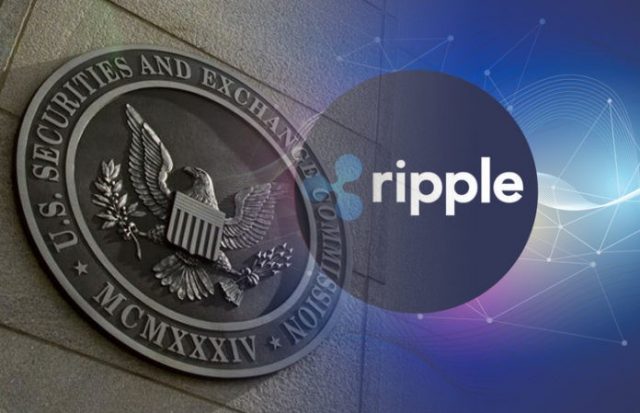
SEC Expected to Rule that Ripple XRP is Not a Security

Ripple XRP is one of many cryptocurrencies floating in regulatory limbo. In key markets like the United States, regulators have been conspicuously reticent to formally define these digital assets. Are cryptocurrencies the same thing as stocks – tradable assets based on equity? Are they currencies – fungible tokens used first and foremost as money? Clarity on these matters could allow people to buy Ripple with greater confidence.
The Securities and Exchange Commision (SEC) has waited to regulate this sector because they don’t want to stunt potentially useful innovations. Labeling cryptocurrencies as securities would greatly restrict their distribution, and impose heavy tax burdens to blockchain companies and their investors. For this reason, the cryptosphere has been hoping for a different conclusion.
We’re pleased to announce that Ripple may be building the best possible future for cryptocurrency regulations.
The Importance of Ripple’s Viamericas Partnership

If you follow us as a news source, you’ve noticed our reports about Ripple partnerships with banks and other institutions. Ripple products generally, and RapidX specifically, allow such financial institutions to send money back and forth overseas, nearly instantaneously and practically free of charge.
This is accomplished by using Ripple XRP as a common trading asset between all other currencies. XRP has real time exchange rates with all currencies traded across borders by these financial institutions. Money is “transformed” from currency A to XRP to currency B in just a few seconds. Ripple’s high liquidity and blisteringly fast blockchain make it all possible.
The newest financial services company to partner with Ripple is Viamericas. Viamericas has a presence in 49 of the 50 United States, as well as much of Latin America. Another remittance industry partner for Ripple isn’t huge news in itself (we’re getting used to this kind of thing), but Viamerica’s has an Ace up its sleeve.
The CEO of Viamericas is a man named Paul S. Dwyer Jr. In addition to his role at Viamericas, Dwyer is the chairman of the United States Money Service Business Association. The MSBA works directly with American regulators to help lawmakers understand the financial industry, so that fitting laws and regulations can be put into place.
The MSBA works directly with the SEC. If the SEC were to declare that Ripple was a security, then it would be taxed for capital gains every time it was bought and sold. Such an outcome would render cross-border transfer services like Ripple obsolete, because tax fees (30% of profits from same-year capital gains) and accounting friction would eliminate Ripple’s “fast and free” value proposition.
American Legal Precedent for Securities Law
We’re making certain assumptions here, but we can hope that Viamericas chose Ripple because they were confident that future SEC rulings would be in Ripple’s favor. This seems like a reasonable conclusion, but what other events can we find that further confirm our suspicions?
Earlier this month, Michael Didiuk (a former SEC employee) made the following statement about Ripple: “I don’t think XRP is a security, I think XRP is a currency. The reason why is… Howey Test… It’s a four factor test – investment of money in a common enterprise with the expectation of profits based on the efforts of others.”
The Howey Test to which Didiuk refers was established by the United States Supreme Court in the 1930s. It describes financial ventures where investing parties supply capital to another group, who will then use it to make money for themselves as well as the investing party.
This definition may describe certain cryptographic tokens, but not Ripple. Ripple Labs could sink into the Earth tomorrow, and Ripple XRP (the currency) would be just as useful as ever. Ripple’s leadership does hold a great deal of XRP, but the Ripple network is becoming more decentralised by the day. The SEC has ruled in the past that Ethereum may once have been a security, but that as decentralisation progressed, it is a security no longer.
If the SEC were to rule that a decentralised Ripple is not a security, this would create… well… ripples throughout the industry. Tax obligations would likely be lighter. Exchanges could expand without fear of being squashed. ICOs and blockchain companies could create long term plans without fear of a sudden change to their financial foundation.
Love it or hate it, Ripple is a major innovator in the blockchain space, one working for solutions that could improve the situation for all cryptocurrencies.
More Resources